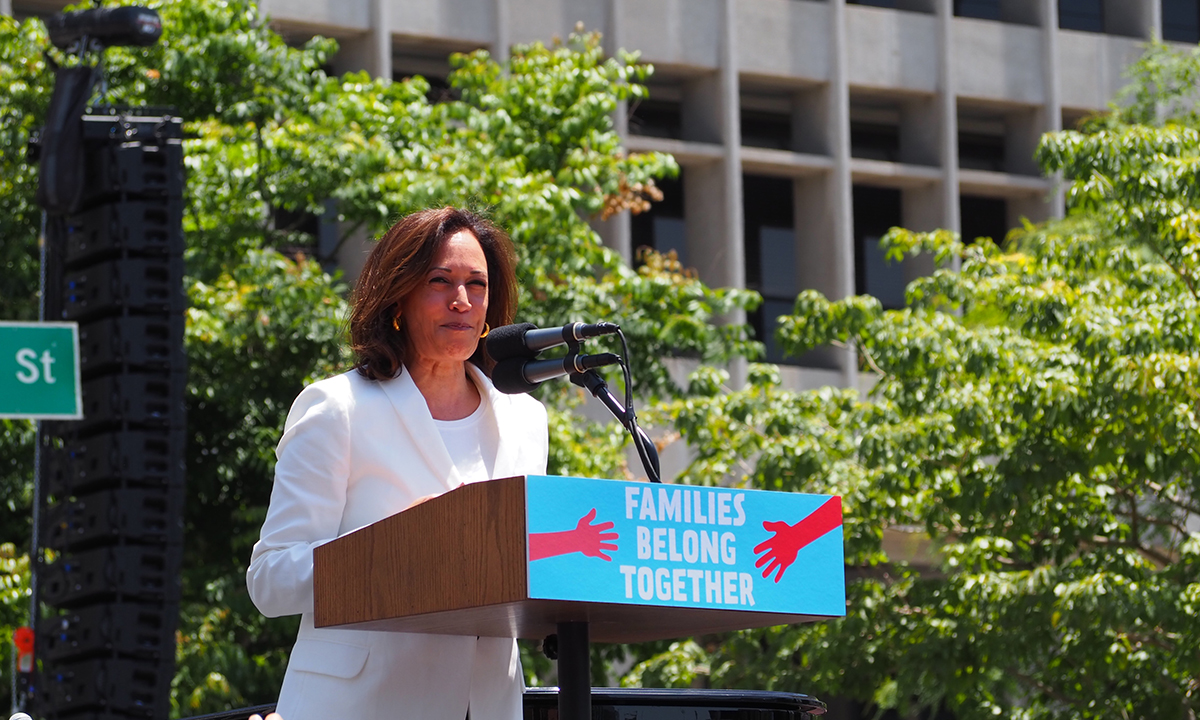Written by Karrie Kirschenmann
Senator Kamala Harris counted her home state, California, as an inherent asset. However, Californians are not meeting her expectations, and she only has herself to blame.
With Californians turning on Sen. Harris, her unstable campaign is being exposed. Currently, Harris is fifth in the polls, trailing Mayor Pete Buttigieg and other candidates like Andrew Yang, Beto O’Rourke, and Sen. Cory Booker not being far behind. Buttigieg is the Mayor of South Bend, Indiana, which has a population of about 100,000 people. So Harris is currently losing to a mayor of a town that would not even be in the top 50 for most populated cities in California. In fact, a recent survey revealed that only one in ten California Democrats support Harris in the presidential primary.
This seems strange because California is an extremely blue state. However, the underlying themes of Harris’ campaign expose her true colors. She has now had multiple poor debate performances (one of which included her record being decimated by Rep. Tusli Gabbard), changing her stances on issues, and lacking a clear message for her goals as president.
California cannot be considered an automatic feat for a candidate, regardless of their party. California is the largest state in the nation, which makes it more difficult for politicians to reach all of their constituents. It is also the most expensive state for campaigning, which gives Californian politicians a disadvantage.
Many Californians have a distaste for politics and, more importantly, Californians do not often meet their elected officials. Californians can live their entire lives without ever visiting Sacramento, while other states are smaller, making it is easier for citizens to engage in their state’s politics.
Politicians have learned that living in California does not inherently lead to a home-state advantage. Don Sipple, a strategist for former Governor Pete Wilson’s embarrassing 1996 campaign, stated, “Unless a candidate proves their bonafides on the national stage, California will abandon [the candidate]. There’s no loyalty.”
Perhaps Californians were not those who lost loyalty, but opportunistic far-left politicians pushing their radical policies. The last Californian to win the presidency was Ronald Reagan back in the 1980s. He possessed a certain electricity when he spoke that united Californians, despite partisan conflict.
The schism in California has grown due to radical agendas. Even within each party, there are conflicting biases and opinions. The only way a candidate will have the potential of winning their home state of California is through unifying their constituents.
Harris will need to connect with the Democrats in California on a foundational, deep-rooted level. She needs to create a strong message that each Californian can pinpoint and understand.
No candidate in the current Democrat field has Ronald Reagan’s charm and charisma. However, if one of them can find a way to unify Californians, perhaps they can still win the most populous state—and even the White House.




